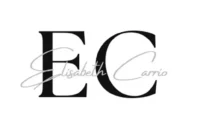Is there such a thing as female leadership?
The question often comes up: Does female leadership exist? And if so, what are its characteristics?
Leadership, in its simplest definition, is the art of leading human beings towards a common goal. To achieve this, one can use persuasion or force. However, for a long time, strength is perceived as masculine, And persuasion as feminineBut this binary vision is outdated — simplistic, even.
Gender, Stereotypes and Transpersonal Psychology
If one is interested in transpersonal psychology and gender identities, the boundaries become blurredIs being a man or a woman only a question of physical appearance? And does this appearance unconsciously dictate behavior?
I don't believe it.
The qualities that we traditionally associate with masculine or feminine are, in reality, present in each of us to varying degreesWhat matters to a leader—regardless of gender—is awareness of one's own resources, in a given environment.
Deep identity goes beyond gender
Clichés die hard: women are supposedly gentle, conciliatory, emotional. Woe betide anyone who strays from this image! Just as we often contrast the right brain (emotional) with the left brain (rational), we tend to oppose masculine and feminine behaviors, forgetting that we are made of duality and complementarity.
I doubt that the terms associated with the feminine spontaneously come to mind when one thinks of Margaret Thatcher or Angela Merkel. And around me, I see more and more men claim and embody so-called feminine qualities, such as gentleness or attention to children.
Rigor: a shared quality
Can we still talk about "female leadership"? I don't think so. Because what I've observed in all the female leaders I've met—entrepreneurs, doctors, politicians—is rigor. Rigor towards oneself, rigor towards others.
But this rigor, far from being a form of virile hardness, creates a structuring framework that allows teams — even peoples — to organize and act with clarity. These women are "womb-women"…but there are also "matrix men". That is why, rigor cannot be assigned to a genre.
In a world where the use of force is less and less tolerated, rigor becomes an act of courage. It resists the temptation of easy compromise or seduction, which, under the cover of feminine values, can result in diluted and ineffective leadership.
Leadership: A posture, not a gender
The qualities of a leader are not linked to a physical identity, even though their expression may be influenced by the perception that others—or oneself—project onto that identity. Sometimes it's easier to act in accordance with what is expected of us, but that has nothing to do with true leadership.
Is leadership innate or acquired? I would say it is a posture that emerges from life experience, nourished by a set of predispositions:
- Interest in others,
- Taste for risk,
- Sense of community,
- Endurance to solitude,
- Decision-making capacity,
- Clear will.
Nothing specifically feminine or masculine here. Rather a alchemy unique to each person.
Masculine and feminine: values, not forms
The feminine and the masculine are not appearances, but bearers of universal values. And these values — of intuition, listening, commitment, rigor, creative power — cross genres and generations.
True leadership, in my opinion, is that which integrates these two polarities and puts them at the service of the collective. Aligned, embodied, open leadership.



